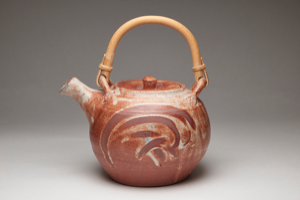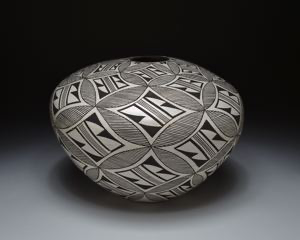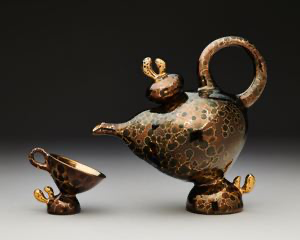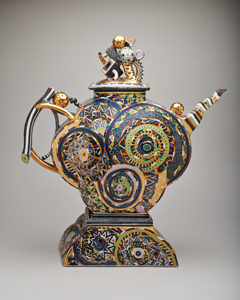| Showing 1 of 1 |
|
Warren MacKenzie
American
(1924–2018)
Teapot with Finger Swipes
circa 2016
Stoneware
9.25 x 9.75 x 9.75 in.
Gift of Peter and Jodie Gerdes
2021.10.2
Teapot with Finger Swipes is a delightfully expressive traditional form that emphasizes the natural beauty of its materials, utility, and the playful gestures of the artist. Along with its Japanese simplicity, MacKenzie’s teapot also exhibits gestural qualities commonly found in abstract expressionism. By prominently marking the surface with his fingers, he transforms the imprint of his hands into ornamentation that enlivens the solid structure of the vessel.
Trained first as a painter, then as a potter, MacKenzie received his BFA from the Art Institute of Chicago in 1947. He and his wife, Alix, were the first Americans to apprentice under the famed British studio potter Bernard Leach, at his studio in St. Ives, Cornwall, England. They remained with Leach for four years, absorbing his principles and an aesthetic deeply influenced by Japanese Zen. MacKenzie, a major figure in American ceramics, was responsible for the wide dissemination of traditional Japanese techniques and the philosophy of mingei, which celebrated the simplicity and beauty of the ordinary ceramic object. MacKenzie was a professor at the University of Minnesota from 1953 to 1990; in 1981 he was honored by Ceramics Monthly magazine as among “the world’s twelve best potters.”
Matthew Limb
- Unearthed , 8/23/2022 - 5/14/2023
This object is a member of the following portfolios:
Your current search criteria is: Objects is "Teapot with Finger Swipes".








